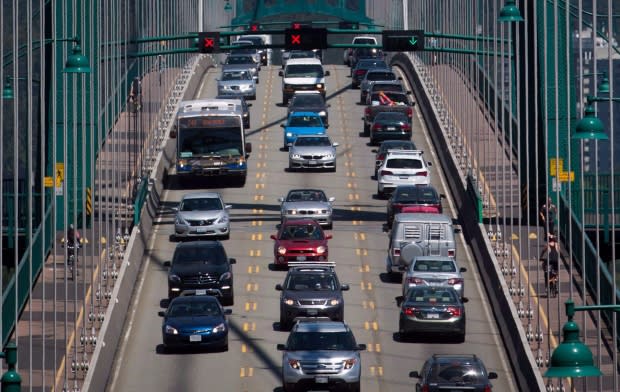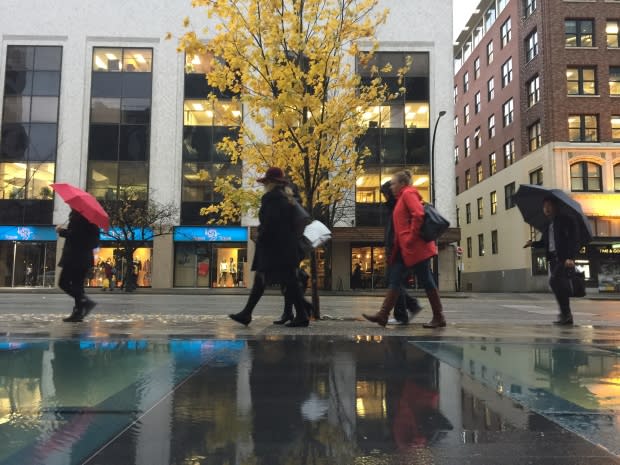'It's going to take a little political courage': Vancouver council to debate climate emergency recommendations
Christine Boyle knows that some people's eyes glaze over when the question of climate change policies come up.
"I think one of the big challenges ... is people being able to imagine what it looks like in their lives," she said.
"All of that talk about parts per million and emission numbers can get a bit wonky."
On Wednesday, the City of Vancouver could take a big step toward turning wonky goals into tangible action.
Three months after Boyle's motion to declare a climate emergency passed unanimously, staff have come back with a number of recommendations to make Vancouver carbon neutral by 2050.
Taken individually, the actions proposed in the report aren't groundbreaking and approval by council this week would simply mean staff will create specific policy and bylaw changes.
But taken collectively, Boyle believes they form the bedrock of how Vancouver can be a global leader in tackling climate change.
"There's a reasonable concern from from skeptics that just declaring a climate emergency doesn't get us anywhere," she said. "What really matters is how we act on it. And so I think it matters that Vancouver set this precedent."

Carbon neutral heating systems
Boyle believes the plan's strength comes from how extensive it is: six "big moves" and 53 "accelerated actions" focusing mainly on transportation and building policies — two areas where municipalities have more jurisdiction.
"I think all of them together are important in the picture that they paint of the kind of city that we could live in," she said, while highlighting the proposed requirement for all new and replacement heating and hot water systems to be zero emissions by 2025.
A move to zero-emission space and water heating could cut 552,000 tonnes of carbon pollution per year, approximately 46 per cent of the targeted reductions.
Anne McMullin, president of the Urban Development Institute, agrees the city has to take action to reach its goals and praised the suggestion to reduce parking requirements in apartments.
At the same time, she cautions that some recommendations come with drawbacks.

"When we're looking at bringing in more green building policies we have to recognize that that is going to add to the cost both in time and ... a longer-term shortage of homes," she said.
"It's not to be critical of bringing in energy-efficient policies, but we need to be mindful of what this means."
Regional solutions
While Vancouver is the biggest municipality in B.C., it's just one city in a complex arrangement of local and regional governments in southwest B.C., each pursuing climate change goals on different timelines.
"Our biggest challenge is actually regional coordination," said Coun. Jessica McIlroy of the City of North Vancouver.
Last month, she put forward a motion that called on her municipality to reach net zero carbon emissions by 2050 — the previous goal was 2107 — and is now awaiting recommendations from staff on how to achieve that target.
"Having each municipality working on its own climate targets in setting its own goals ... is, I would say, not as efficient or really meaningful if we actually do have a better regional coordinated action," said McIlroy.

Still, several municipalities are moving forward with plans, including the District of North Vancouver, New Westminster and Richmond.
But Vancouver is the first to come forward with detailed suggestions. And is the region's biggest city. Which makes Wednesday's vote all the more interesting.
"There are very strong recommendations and it's not going to be easy for everyone on this council to could get on board with them," said Boyle.
"I think it's going to take a little political courage. So we'll see how that goes."

